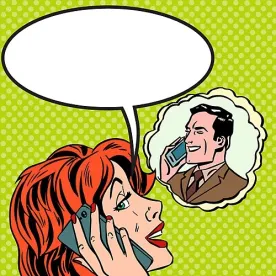A recent decision by the Eleventh Circuit will make it more difficult for plaintiffs to establish standing to sue under the Telephone Consumer Protection Act (TCPA). In Salcedo v. Hanna, et al., Case No. 17-14077, 2019 U.S. App. LEXIS 25967 (11th Cir. Aug. 28, 2019), the Eleventh Circuit ruled that a single text message did not cause sufficient harm to sue in federal court. As a result, “single text message” TCPA cases may be a thing of the past, at least in the federal courts across the three States in the Eleventh Circuit (Florida, Georgia, and Alabama). However, given conflict with a ruling by the Ninth Circuit, the issue may now be ripe for decision by the U.S. Supreme Court.
The plaintiff, John Salcedo, received a single automated text message from his former attorney offering a ten percent discount on legal services. Salcedo then filed a putative class action seeking to represent a class of individuals who received similar unsolicited text messages from the attorney and his law firm in alleged violation of the TCPA. He sought to recover statutory penalties of $500 to $1,500 for each text message sent. He also alleged that the text message caused him to “waste his time answering or otherwise addressing the message” and invaded his privacy and “right to enjoy the full utility of his cellular device.”
The three-judge panel of the Eleventh Circuit did not buy it. In a detailed opinion, the panel examined its own precedent, the legislative history of the TCPA, and the history of the Article III standing requirement, including the Supreme Court’s decision in Spokeo v. Robins, and concluded that Salcedo’s allegations about a single text message failed to state a concrete injury-in-fact necessary for federal jurisdiction.
The Eleventh Circuit explained that Salcedo’s “allegation is precisely the kind of fleeting infraction upon personal property that tort law has resisted addressing.” The court noted a text “consumes the receiving device not at all.” It also found “less congressional concern about calls to cell phones” compared to residential landlines. Accordingly, the court concluded “a brief, inconsequential annoyance” is “categorically distinct from those kinds of real but intangible harms” and Salcedo failed to satisfy Article III’s injury-in-fact requirement.
The court emphasized that its ruling was not based on “how small or large” Salcedo’s alleged injury was, but rather on the “qualitative nature of the injury.” The court further explained that “[s]ome harms that are intangible and ephemeral” may constitute an injury-in-fact, but Salcedo’s allegations of the harm he suffered from single text message do not.
The court compared the “chirp, buzz, or blink of a cell phone receiving a single text message” to “walking down a busy sidewalk and having a flyer briefly waived in one’s face.” “Annoying, perhaps, but not a basis for invoking the jurisdiction of the federal courts.”
The court held that mere annoyance is not enough for federal jurisdiction under Article III, but suggested that allegations that a call or text message “shattered” a plaintiff’s “domestic peace” by interrupting a family dinner might be enough.
The Salcedo ruling appears to conflict with the Ninth Circuit’s ruling in Van Patten v. Vertical Fitness Group, LLC, 847 F.3d 1037, 1043 (9th Cir. 2017), which found that unsolicited calls or texts, “by their nature, invade the privacy and disturb the solitude of their recipients.” The Eleventh Circuit found Van Patten to be “unpersuasive,” setting up a circuit split that may result in adjudication by the U.S. Supreme Court.
What does this mean? Well, one “chirp” may not be enough to get you into trouble in some federal district courts, but a cacophony of harassing buzzes, blinks, and rings likely will. The more automated text messages and calls you make, the more likely it is that a court will find enough injury-in-fact under the TCPA. So make sure you have sufficient TCPA consent before sending automated text messages or calls.






 />i
/>i

